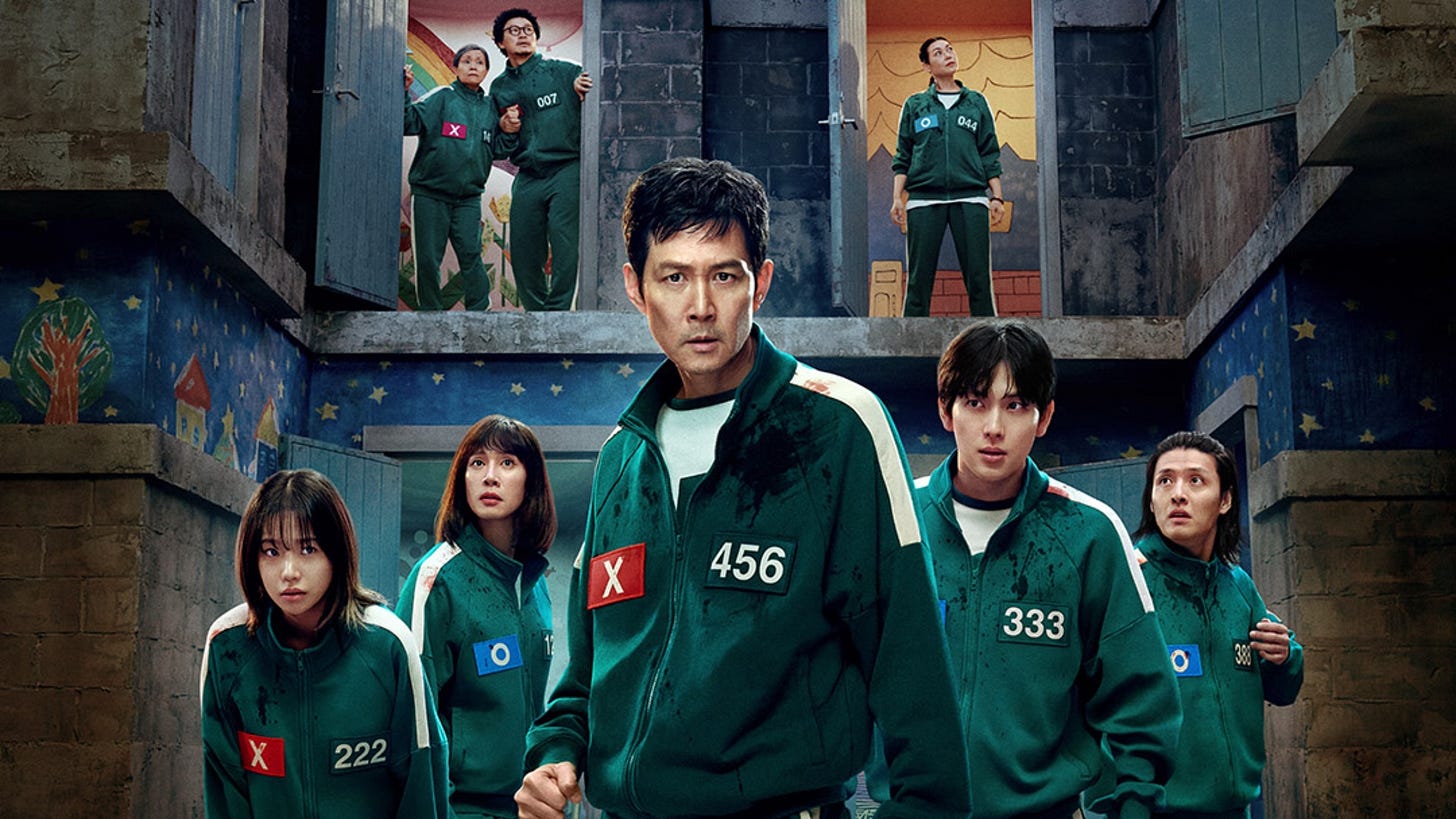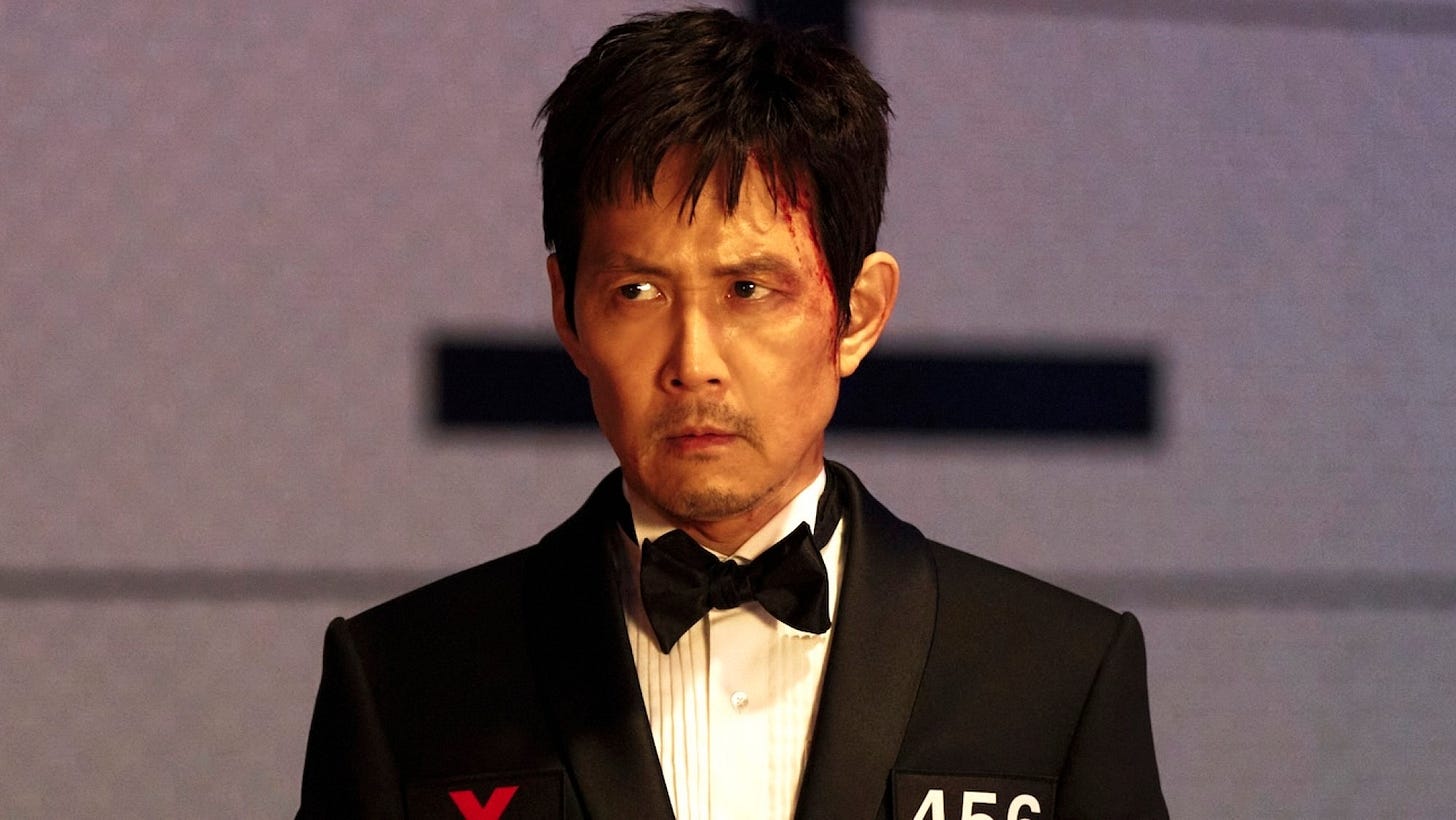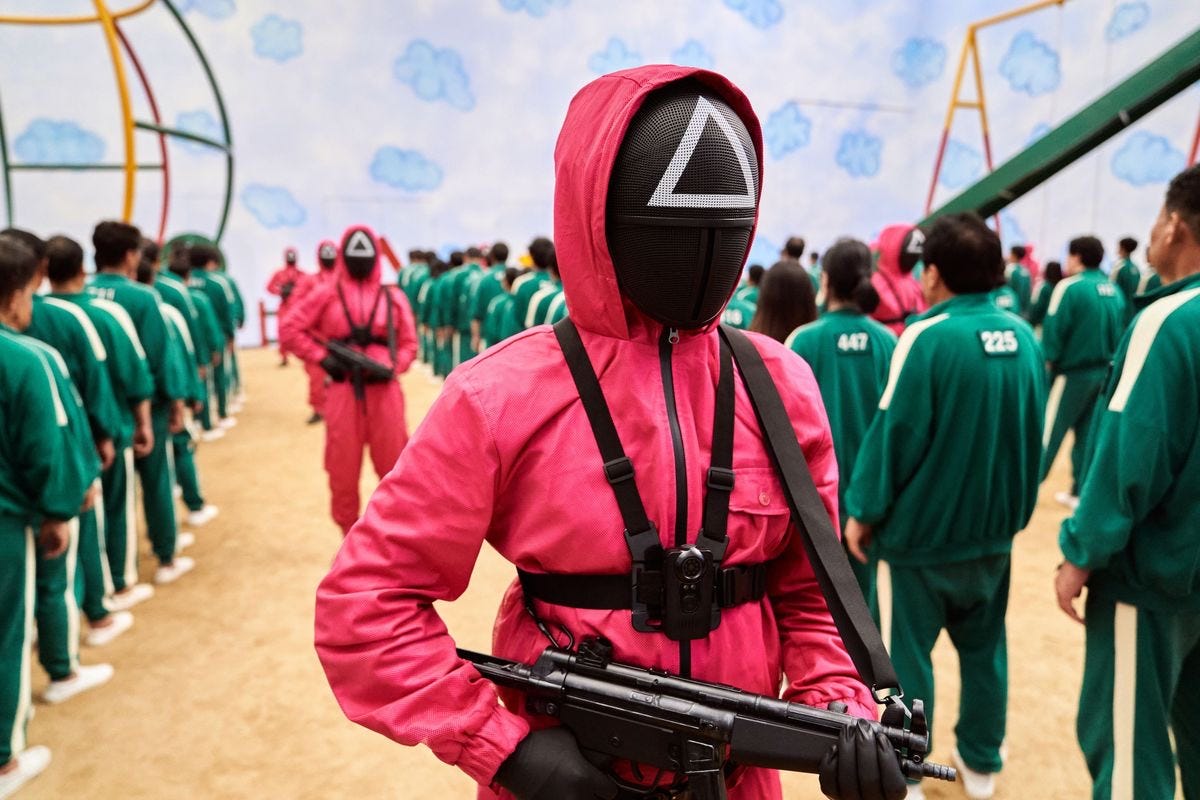How ‘Squid Game’ Became Its Own Worst Enemy
Saying a bittersweet goodbye to Netflix's most popular series.
(Spoilers Ahead)
I’ve never written about a TV show on my Substack before, so what might be a lesser known fact about me is that I’m an absolute TV fanatic. But, ‘EmLovesFilmAndTV’ didn’t quite have the same ring to it, so I let it be.
And to be perfectly honest, I can’t think of a better show to write my first Substack TV article on. Sure, I have my favourite shows such as The Walking Dead, Better Call Saul or Midnight Mass, but Squid Game is undoubtedly the most influential, instantly iconic and, dare I say it, one of the best TV shows to come out of the last decade.
Until it wasn’t.
Despite its ‘cringe’ fandom and the fact that it should have unarguably been one season done and dusted, Squid Game is a show that means a lot to me. The first season was released in my last year of high school, and I remember it sparking many conversations among my friend group at the time, and I became absolutely obsessed with everything about it. After a three year wait for the second season, despite my apprehension, I fell in love with the show all over again in December 2024.
I think overall, the concept is simple but impactful, the writing is genius, and the characters are where the show truly thrives, showcasing every end of the spectrum of humanity, from the innocent and the exploited to the exploiters that run our society.
So in short, I think the first two seasons of Squid Game are pretty much perfect. Nothing could ever beat season one in my eyes, but season two was a blast and I loved every second (maybe not the boat plotline). I would also say the same about the first three episodes of season 3.
But after that… it starts to get messy.
Squid Game is and always has been, very obviously, a critique of the capitalist society we live in. Which is why there being more than one season of the show in the first place feels… off. So does how dragged out this season feels. The pacing of season three is all over the place - it feels rushed yet incredibly slow, a strategy employed by Netflix to milk the show past its natural ending point for more money, a byproduct of the exact system the show is critiquing. It all feels incredibly ironic.
That wasn’t my main problem with this season. Honestly, up until the last five minutes, I had zero problems with this season, other than being devastated about the loss of some of my favourite characters and annoyed by some awfully written/acted VIPs (both of which have been staples of the show since the very start, so people complaining about these aspects can’t have paid much attention to the show).
My biggest problem comes with the very last scene of the show, where we witness an American recruiter (played, inexplicably, by Cate Blanchett) playing the iconic Ddakji game with a struggling citizen. The message of this scene is in perfect keeping with the rest of the show. Capitalism makes the world go round and, despite the rebellious efforts of the bravest among the lower/working class, the rich will always find a way to win. History is written by the winners and dictated by those with power who can overthrow those of us desperate for justice rather than entertainment. Thousands of people have died to entertain the filthy rich and it still isn’t enough of an awakening to them. The games may have stopped in Korea - for now - but they will continue on elsewhere as the world continues to enable the rich and demonise the poor.
The message of this scene isn’t the problem - the execution is. The inclusion of such a famous face as Cate Blanchett completely takes away from the message of the ending and, in turn, the core message of the entire show. It’s a way to bait people into watching an unnecessary American spinoff (more on that later) and has caused people to focus more on the famous face in a glorified cameo than what the ending is actually trying to say. This character being faceless or played by an unknown actor would have really driven the message home and delivered one final gut punch to the viewers. Instead, the ending does neither of these things and leans into the capitalist ideals it was created to critique.
Squid Game is a deeply human story about greed and the demonisation of the desperate. The creator, Hwang Dong-hyuk, spent years trying to pitch his creation, modelled after his own experience and having to sell the laptop he was drafting the script on for cash just to get by. Really, he got incredibly lucky and was able to share his equally gripping and touching story with millions. And then Netflix got their consumer-driven hands on a story about the pitfalls of the capitalist society that controls us, churned it through their machine, and the end result was the ending of season three and Squid Game: America, a spinoff set to be directed by David Fincher.
I don’t feel as though I need to explain why a Squid Game spinoff is a terrible idea. In short, creating a cinematic universe intended to grab cash that evolved from a story about the lengths humanity will go to for money, is a true testament about how success can destroy even the most golden of stories.
I will always look back on Squid Game with fond memories, but I’m afraid any future spinoffs will not be getting a penny from me. Overall, I did truly enjoy the final season of Squid Game and, despite my distaste for the ending and how it was handled, I would recommend checking it out. You might be treated to some of the most tense television we’ve seen in a while, the usual creative death games we’ve come to expect from this show and some truly touching character arcs.
Squid Game tells a moving story about a money-crazed society, and its success turned it into an oversaturated by-product of that exact society. It’s truly a shame, but if that doesn’t drive home the message the show portrays across all three seasons, I don’t know what will.







I saw enough pricks take it upon themselves to spoil the ending on Instagram so I thought that I might as well hear someone explain it in case I never finish the show. The decision to end the three seasons with a tease for a spin-off is incredibly cynical, I think you’re absolutely right to call the finale of this series the total opposite of its overall message.